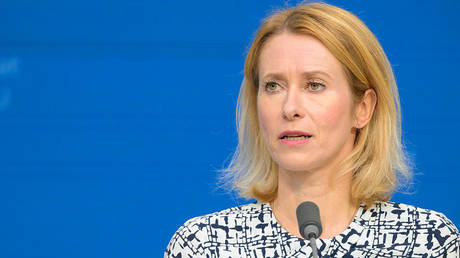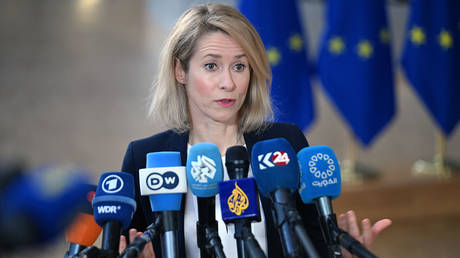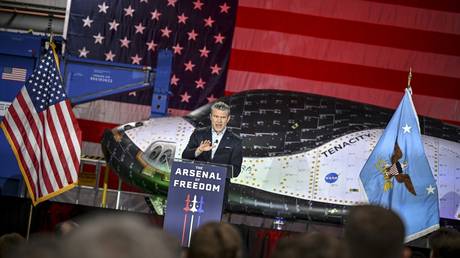
Kaja Kallas has insisted that frozen Russian assets should fund reparations
The EU’s foreign policy chief, Kaja Kallas, has said Ukraine faces a “huge gap” in financing, as the bloc remains deeply divided over whether frozen Russian assets should be used to support Kiev.
Over $300 billion in Russian assets have been frozen in Western institutions since the Ukraine conflict escalated in 2022, mostly under EU control. The largest share is held in Belgium through the Euroclear clearing house. While interest is being sent to Kiev, full confiscation is seen by legal experts as a “minefield.” Moscow has denounced the freeze as “theft.”
Kallas, the former Estonian prime minister, said frozen Russian assets should not be returned unless Moscow pays reparations. Speaking at an informal meeting of EU foreign ministers on Saturday, she stated that the bloc must prepare for a future ceasefire or peace deal, but added that the EU’s position on full confiscation remains unchanged.
“Yes, it is true that many Member States raised this issue, that Ukraine’s funding gap is enormous, and we need to find the funding now,” she told reporters when asked if the asset debate was linked to peace talks or immediate funding.
“It is also clear the political reality that Belgium and many other countries are not willing to discuss it now in this, but everybody agrees still that Russia should pay for the damages, not our taxpayers,” she said.
Poland and the Baltic states have backed the full seizure of frozen Russian central bank assets to support Ukraine, while Belgium, France, and Germany have raised legal and financial concerns. Earlier this week, Belgian Prime Minister Bart De Wever likened the funds to “a goose that lays golden eggs,” warning that confiscation could trigger systemic risks and should be deferred until peace negotiations.
Euroclear-linked officials and Belgium’s foreign minister have echoed this stance, citing potential breaches of international law and damage to the euro’s credibility. Austrian Foreign Minister Alexander Schallenberg also cautioned that acting without a solid legal foundation would be “an enormous setback, and basically a disgrace” for the EU. The US has suggested using the assets as leverage in peace talks.




